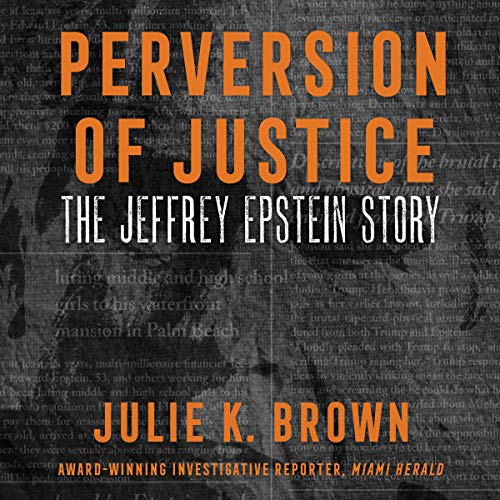Perversion of Justice

Full Title: Perversion of Justice: The Jeffrey Epstein Story
Author / Editor: Julie K. Brown
Publisher: HarperAudio, 2021
Review © Metapsychology Vol. 25, No. 35
Reviewer: Christian Perring
The story of Jeffrey Epstein became better known when Julie Brown wrote a series, Perversion of Justice, about it for the Miami Herald in 2018. (The series is now behind a paywall but the related videos are available.) In July 2019 Epstein was charged with sex trafficking, and he died, quite likely by murder, in August 2019.
So Brown’s journalism played a large role in spurring the justice system to action. Her book recounts the story at much greater length. It sets out the extent to which Epstein used his resources to procure a supply of young teen girls for his sexual pleasure. He was aided by a large number of others, in an international operation. Girls were often enticed to come to Epstein by other girls who got rewarded for doing so. They were standardly told that they would be coming to give someone a massage, and they did do that, but it then would turn into a sexual encounter. Brown reports accusations that Ghislaine Maxwell, Epstein’s one time girlfriend and aide, was active in recruiting girls too. He got girls from modeling agencies from locations in different parts of the world.
There are also accusations that Epstein provided girls for many prominent men, who have all protested their innocence. Further, there are suspicions that Epstein may have made videos of those encounters and used them to protect himself against prosecution. None of that has been proven though. It looks like those involved have been careful to protect themselves.
However, it is hard to understand how Epstein got off so lightly from the earlier charges against him starting in 2005 with 30 or more girls accusing him of sexual abuse, unless there was high level corruption. Several high level judges and politicians fall under suspicion. After 2008, Epstein was a registered sex offender, but it had little impact on his activities. Reading the book will erode a reader’s confidence in the US justice system, if the reader had any to start with.
The other topic of Brown’s book is journalism. She makes clear how much the profession has changed as news organizations got cut back in recent decades. Her story makes clear how important investigative journalism is. If it were not for her, Epstein might never have been charged in 2019. There are times when law enforcement does not live up to the standards we expect of it. Brown spells out her working relationships with colleagues, her application for jobs which she did not get, her worrying about job expenses, and buying bagels for the office on the day of the release of her big story. She gives the impression that you really have to love being a journalist these days to stick with the job.
In the course of the book Brown also talks a little about her personal life. For the time she was writing about, she was divorced with two children, scrambling to pay her bills, in a rather unfulfilling uncommitted relationship with one main man. She seems keen to paint herself in an unflattering and even unlikeable light. In a recent interview, she explains her editor pushed her to include personal details, while she had not wanted to. Her reluctance comes through, and the book might have been better if she had done more to make herself a sympathetic character in her own story.
Still, she wins readers’ admiration for her commitment to telling the stories of the girls who were abused and pointing to the flaws in the justice system. It’s possible to get the basics of the Epstein story from a shorter video or his Wikipedia page (which was one of the most viewed Wikipedia pages of 2019 and 2020). But Perversion of Justice provides important details that make it worth the effort.
Most of the audiobook is performed by Julia Whelan, who keeps a sober tone despite the nature of the material.
Christian Perring is editor of Metapsychology Online.
Categories: Memoir
Keywords: Epstein, corruption, sex trafficking
